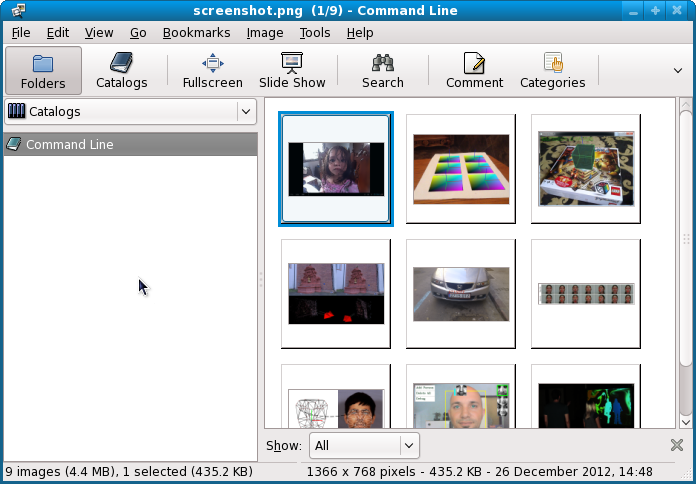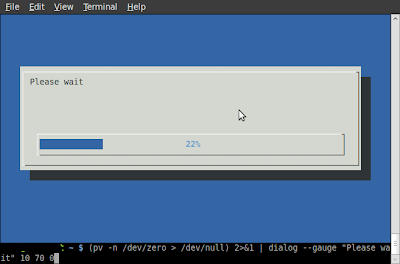This can give us new ideas ...

tutorials, tips, tricks, commands, programming, linux, windows, database, sql, python, programming language, Fedora, drawing, painting, tutorial, tutorials
The linux command dmidecode is a tool for dumping a computer's DMI.
# dmidecode -h
Usage: dmidecode [OPTIONS]
Options are:
-d, --dev-mem FILE Read memory from device FILE (default: /dev/mem)
-h, --help Display this help text and exit
-q, --quiet Less verbose output
-s, --string KEYWORD Only display the value of the given DMI string
-t, --type TYPE Only display the entries of given type
-u, --dump Do not decode the entries
-V, --version Display the version and exit Let's see the option: -t.
# dmidecode -t -h
Invalid type keyword: -h
Valid type keywords are:
bios
system
baseboard
chassis
processor
memory
cache
connector
slot Now let's show you some infos about my old processor.
# dmidecode -t processor
# dmidecode 2.9
SMBIOS 2.3 present.
Handle 0x0004, DMI type 4, 32 bytes
Processor Information
Socket Designation: SOCKET A
Type: Central Processor
Family: Other
Manufacturer: AuthenticAMD
ID: 62 06 00 00 FF FB 83 03
Signature: Family 6, Model 6, Stepping 2
Flags:
FPU (Floating-point unit on-chip)
VME (Virtual mode extension)
DE (Debugging extension)
PSE (Page size extension)
TSC (Time stamp counter)
MSR (Model specific registers)
PAE (Physical address extension)
MCE (Machine check exception)
CX8 (CMPXCHG8 instruction supported)
APIC (On-chip APIC hardware supported)
SEP (Fast system call)
MTRR (Memory type range registers)
PGE (Page global enable)
MCA (Machine check architecture)
CMOV (Conditional move instruction supported)
PAT (Page attribute table)
PSE-36 (36-bit page size extension)
MMX (MMX technology supported)
FXSR (Fast floating-point save and restore)
SSE (Streaming SIMD extensions)
Version: AMD Athlon(TM) MP 1700+
Voltage: 1.7 V
External Clock: 133 MHz
Max Speed: 2250 MHz
Current Speed: 1466 MHz
Status: Populated, Enabled
Upgrade: Other
L1 Cache Handle: 0x0009
L2 Cache Handle: 0x000A
L3 Cache Handle: Not Provided
Also you can use this format to read infos.
# dmidecode --type 0 --type 13 The numbers tell what to read, see:
bios
system 1, 12, 15, 23, 32
baseboard 2, 10, 41
chassis 3
processor 4
memory 5, 6, 16, 17
cache 7
connector 8
slot 9
- Intel Core-2-Quad 2.4GHz or similar
- 2 Go Ram
- DX9 3D video card such as Nvidia GTX280 or Radeon HD5850 or newer.
chown: changing ownership of ...: Read-only file system # mount -o rw,remount /media/disk # mount -o ro,remount /media/disk $ git clone git://github.com/MasteringOpenCV/code.git code]$ ls
Chapter1_AndroidCartoonifier Chapter7_HeadPoseEstimation
Chapter2_iPhoneAR Chapter8_FaceRecognition
Chapter3_MarkerlessAR Chapter9_FluidInteractionUsingKinect
Chapter4_StructureFromMotion LICENSE.txt
Chapter5_NumberPlateRecognition README.md
Chapter6_NonRigidFaceTracking .
|-- Chapter1_AndroidCartoonifier
| |-- Cartoonifier_Android
| | |-- AndroidManifest.xml
| | |-- jni
| | | |-- Android.mk
| | | |-- Application.mk
| | | `-- jni_part.cpp
| | |-- project.properties
| | |-- res
| | | |-- drawable
| | | | `-- icon.png
| | | `-- values
| | | `-- strings.xml
| | `-- src
| | `-- com
| | `-- Cartoonifier
| | |-- CartoonifierApp.java
| | |-- CartoonifierView.java
| | `-- CartoonifierViewBase.java
| |-- Cartoonifier_Desktop
| | |-- CMakeLists.txt
| | |-- ImageUtils.h
| | |-- ImageUtils_0.7.cpp
| | |-- cartoon.cpp
| | |-- cartoon.h
| | `-- main_desktop.cpp
| |-- README.txt
| `-- screenshot.png
|-- Chapter2_iPhoneAR code]$ ls -d $PWD/**/*.png
/home/free-tutorials/code/Chapter1_AndroidCartoonifier/screenshot.png
/home/free-tutorials/code/Chapter2_iPhoneAR/screenshot.png
/home/free-tutorials/code/Chapter3_MarkerlessAR/screenshot.png
/home/free-tutorials/code/Chapter4_StructureFromMotion/screenshot.png
/home/free-tutorials/code/Chapter5_NumberPlateRecognition/screenshot.png
/home/free-tutorials/code/Chapter6_NonRigidFaceTracking/screenshot.png
/home/free-tutorials/code/Chapter7_HeadPoseEstimation/screenshot.png
/home/free-tutorials/code/Chapter8_FaceRecognition/screenshot.png
/home/free-tutorials/code/Chapter9_FluidInteractionUsingKinect/screenshot.png code]$ ls -d $PWD/**/*.png | xargs gthumb 
convert -resize x600 *.png convert -resize 600x *.png From: Linus Torvalds <torvalds <at> linux-foundation.org>
Subject: Linux 3.7
Newsgroups: gmane.linux.kernel
Date: 2012-12-11 03:59:50 GMT (9 hours and 45 minutes ago)
Whee. After an extra rc release, 3.7 is now out. After a few more trials at fixing things, in the end we ended up reverting the kswapd changes that caused problems. And with the extra rc, I had decided to risk doing the buffer.c cleanups that would otherwise have just been marked for stable during the next merge window, and had enough time to fix a few problems that people found there too. There's also a fix for a SCSI driver bug that was exposed by the last-minute workqueue fixes in rc8. Other than that, there's a few networking fixes, and some trivial fixes for sparc and MIPS. Anyway, it's been a somewhat drawn out release despite the 3.7 merge window having otherwise appeared pretty straightforward, and none of the rc's were all that big either. But we're done, and this means that the merge window will close on Christmas eve. Or rather, I'll probably close it a couple of days early. For obvious reasons. It's the main commercial holiday of the year, after all. So aim for winter solstice, and no later. Deal? And even then, I might be deep into the glögg. Linus
Read more here.
# yum install ImageMagick $ convert *.png *.jpg$ mogrify -format png *.jpg $ sudo yum install pv man pv NAME
pv - monitor the progress of data through a pipe
SYNOPSIS
pv [OPTION] [FILE]...
pv [-h|-V]
DESCRIPTION
pv allows a user to see the progress of data through a pipeline, by
giving information such as time elapsed, percentage completed (with
progress bar), current throughput rate, total data transferred, and
ETA.
To use it, insert it in a pipeline between two processes, with the
appropriate options. Its standard input will be passed through to its
standard output and progress will be shown on standard error.
$ pv voronoi.py | python
737B 0:00:00 [86.9kB/s] [==================================>] 100% $ pv /dev/zero > /dev/null
1.1GB 0:00:05 [ 2GB/s] [ <=> ] $ (pv -n /dev/zero > /dev/null) 2>&1 | dialog --gauge "Please wait" 10 70 0

#insmod kernelmoduletest.ko #dmesg | tail $ rmmod kernelmoduletest
ERROR: Removing 'kernelmoduletest': Operation not permitted #include <linux module.h="">
#include <linux kernel.h="">
MODULE_LICENSE("GPL");
MODULE_DESCRIPTION("kernelmoduletest");
MODULE_AUTHOR("Catalin George Festila/mythcat/catafest");
int init_module() {
printk(KERN_INFO "Now I will initialize my kernel module\n");
printk(KERN_INFO "Test: Hello World !\n");
return 0;
}
void cleanup_module() {
printk(KERN_INFO "Bad!... kernel module unloaded.\n");
}</linux></linux> obj-m += kernelmoduletest.o
all:
make -C /lib/modules/$(shell uname -r)/build M=$(PWD) modules
clean:
make -C /lib/modules/$(shell uname -r)/build M=$(PWD) clean # make
...
Building modules, stage 2.
MODPOST 1 modules
...
make[1]: Leaving directory `/usr/src/linux-headers-2.6.31-14-generic'
[14694.779227] Now I will initialize my kernel module
[14694.779233] Test: Hello World !
[15049.825605] Bad!... kernel module unloaded.